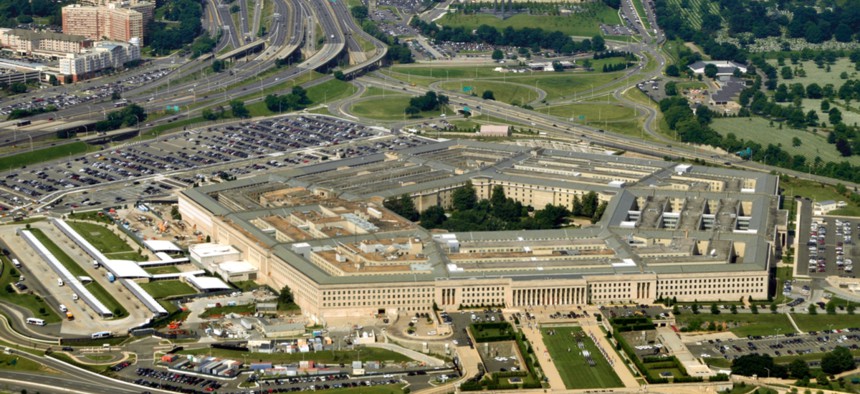Microsoft Cloud Can Now Host Classified Pentagon Data

Frontpage/Shutterstock.com
The Defense Department will be able to send data that requires a secret-level security clearance to view to the company’s cloud.
Microsoft announced on Tuesday that the Defense Department can host secret classified data in its cloud.
The announcement means the Defense Department, the military services, intelligence agencies and their industry partners working within secret enclaves can host classified data in Microsoft’s Azure Government Secret cloud, where they’ll have access to new technologies like machine learning.
“This is a hyper-scale cloud with the same innovations and security you would expect, with innovation in areas like artificial intelligence, data, machine learning and of course, security,” said Tom Keane, Microsoft Azure’s head of Global Infrastructure.
» Get the best federal technology news and ideas delivered right to your inbox. Sign up here.
“This environment will allow some of the most secure and important data the U.S. government holds to be realizing some of the power we are making available with Azure Government,” Keane added.
The U.S. government designates secret classified information as data that would cause “serious damage” to national security if it were publicly available and requires a secret-level security clearance to view.
Secret data is traditionally distributed through a system of computer networks managed by the Defense and State departments called the Secret Internet Protocol Router Network, or SIPRNet. Microsoft’s Azure Government Secret cloud can now host SIPRNet data, Keane said.
“SIPR is the platform with which the U.S. and coalition partners go to war,” Keane told Nextgov.
“What SIPR is an example of is a secret enclave. It’s just a very, very large one. If you think about the FBI, the Department of Justice and Department of Homeland Security, all of these organizations have secret-level networks,” Keane said. “So what we’re announcing with Azure Secret is the ability for all those secret networks to be connecting in.”
Keane described Microsoft’s Secret cloud as a physically isolated infrastructure located in a secure facility operating under cleared personnel.
Microsoft is one of several companies, including IBM and Amazon Web Services, that have been beefing up the security of their cloud platforms in an effort to snag business within the Defense Department, which spends nearly $50 billion on information technology each year.
Last year, Microsoft became the first cloud provider to host the military’s most sensitive unclassified data. Cloud is even gaining traction in the intelligence community. The National Security Agency runs its own private cloud and the CIA operates an Amazon-hosted cloud.
NEXT STORY: IRS pushes back on data protection criticisms






